|
In which the writer contemplates the war in Ukraine, and talks about martial arts as a vehicle for good.
“Please stop talking about your bloody rats” my mother says as she sits in front of her computer screen across from mine. For various reasons, I’d spent the week working from her flat in Trondheim, observing the news of the Ukraine war as told by Norwegian TV reports and the ever-reliably depressing 24/7 bitesize atrocity-horror that Twitter delivers. Talking about rats in an increasingly gushing albeit manic manner has been my way of offsetting my own reactions to the event, a veritable “happy place” that has prompted my best friend to send a Daily Mail article of a woman with 50 rat children of her own. “I love you, but please don’t turn into this woman,” she wrote. Point taken. In the case of my mother, I reverted, as per family tradition, to the subject of news, something there rarely ever was much of a break from -- for better or worse -- in our home. “Mum, why did you send me an article about rapist Russian soldiers just as I was walking home from the gym. I paid 200 Kroner for these endorphins, please just let me enjoy them,” was one conversation we had. This is how boundary setting looks in a family that -- for better or worse -- has always marched to the beat of current events. Children of the revolution? I was born in Budapest in 1989 on my father’s hunch that the Soviet Union was set to crumble. He reported on those unfolding events in what was ultimately described as one of the “best years in history,” according to one historian. The good guys won. The yoke of communism was crushed. In some cases -- as in Czechoslovakia -- thanks to an entirely peaceful movement. The nickname I accrued as a result of the timing I chose to begin existing in the world was the fond “child of the revolution”. I ceased growing at the age of three and took up the hobby of shattering window panes with my voice shortly thereafter. Joke. Sort of. Another nickname I enjoyed was “Sarah Screamer”. After 1989, we all didn’t exactly live happily ever. But at least we could vote for our own leaders and no one needed to worry that much about whether their neighbours would shit talk them to the secret police. There was genuine hope for a better and fairer world after decades of oppression. “OK, OK, yes, sure,” my mother replied when I asked her to hold off on the news horror after 6p. We ate Hungarian chicken soup, watched the cascade of snow outside our window, and settled on an X-men film in which the things being blown up were fictional things and not real people’s homes and where the good guys ultimately won. What a relief that was. A nose for news? Facetious comments about rats and sport and war aside, there isn’t much genuine escaping to be done, and there’s only so much respite available from the pervading sense of powerlessness that comes with bearing witness to an event like the war in Ukraine. As journalists, our task is to make as accurate assessments of the unfolding events as possible in a way that determines the most likely future outcome. That’s actually really tricky, especially when so many of our own biases come into play, and when the stakes are so incredibly high. When the intensity of emotion is all-pervasive. I’ve -- in the past -- been told to “trust my gut” and “smell out a story”. Savvy journalists are spoken of as having a ‘nose’ for news. When a beat is as broad as it is these days for most journalists -- i.e. the world and everything in it -- I’m not sure how accurate that nose can actually be. Being told to trust your gut is as useful a piece of advice as it is unhelpful. The gut is a wellspring of emotional data points accrued via personal experience and the passing down of family experience. There is wisdom to be gleaned here, but it does not tell the full story, and never can. Such rhetoric carries the same weight as being told to trust your intuition and apply only that in all facets of life, as if emotion alone carries all the relevant data points we need to live a good life. By good I also mean an ethical one of sound judgment, as opposed to the pursuit of pure personal fulfillment. This is basically the same intellectual maneuver Paltrow advises women with her new age goobledee gook, and Rogan touts with his blustering macho fight talk. Compelling in its simplicity and in how it frames the individual’s place in the world, but ultimately unyielding, potentially immoral, and highly corruptible. Putin --a real Judoka? Journalists and analysts who remember the Cold War have come out in force to analyse the new chapter (a much needed slice in the analysis pie, of course). They will also need to do the work of acknowledging their own blind spots and their own hubris. The world is different now. And the idea of the all-knowing journalist was always a facade anyway. This is especially the case in determining the outcome in Ukraine based on one extremely troublesome variable: Putin. What is going on in that man’s head? Think pieces abound. There’s talk of his machismo, his imperialistic designs, his (supposed) love of risk, his brooding mistrust of the world and everyone in it, the little violin he pulls out and plays to the Russian people about how mean NATO is to him, his KGB background and all the deviousness that comes with that, his underpants poisoning and his ridiculous long table. But what game is he actually playing here? What losses is he willing to count at the end of all of this. I don’t think he even knows the answer to that. If he is the chess player so many think pieces have described him as, his game isn’t exactly masterful and no one -- except maybe the fleet of dolled up flight attendants he filmed himself explaining his motives to -- is impressed (actually, one suspect that they, too are rolling their eyes). He’s just a boy with an armory of war toys that don’t even work that well. If he’s not a very good chess player, then maybe we should think further out of the box and ponder his other hobbies. The fight nerd in me reflected on his Judo background. I have no Judo training myself. Brazilian Jiu Jitsu (and perhaps wrestling) is the closest martial art I’ve come into contact with, and which I understand has a lot to do with rolling with the (metaphorical) punches, calmly working various levers of pain, confusion and power to force your opponent into submission. But done properly, it’s also a strategic game. Fighters put in a great deal of research ahead of the event to determine their opponents’ strengths and weaknesses and thereby develop a strategy which of course becomes their big secret. The stronger fighter can work on strong-arming maneuvers, the weaker will have to think a lot more carefully in terms of applying clever levers and evasive movements. Both will want to pull out of their hats new, unpredictable repertoires that their opponent cannot anticipate. But as I said, Judo might be different. I spoke to my neighbour, who I knew had taken Judo pretty seriously since childhood. “I was a pretty crazy kid,” he had previously told me, rubbing his shoulder which was recovering from an injury that had forced him off the mat for a long stretch of time. “My mum didn’t know what to do with me, so she sent me to learn Judo. That calmed me down”. I asked whether, from the perspective of a Judoka, Putin’s maneuvers seemed somehow recognisable. “Oh my God, he’s not even that good at Judo, it’s just all part of his bullshit propaganda,” he said. “Sure, he’s a black belt, but his fights are staged. They bring in these top fighters and basically tell them to lose. It’s really embarrassing. I’m so glad the Judo Federation kicked him out when the war started”. So there we have it. Even Putin’s so-called love of risk and blustering man-on-man tussling is a Potemkin village. I can’t really think of a better example of toxic masculinity’s cowardly underbelly than that one. Strength and self-esteem But the matter remains, that a coward cowering in the Kremlin with his big boy war toys has accrued a dominant enough position vis-a-vis the world to unleash heartbreaking destruction in what is ultimately a plea for attention and recognition. And we spectators have to do the work of paying him that attention when there’s so many other pressing issues to address. For my own part, the witnessing has brought up experiences of my own, among them, the creeping sense of powerlessness that came with witnessing Hong Kong’s beleaguered fight for freedom. I’d like to pretend that 2019 was the year Sarah “child of the revolution” came out in full force. But she did not. She had burnt herself out worrying about the weight of the world and was checking out. That was the year I really got into sports, having never shown any aptitude before, having channeled most of my emotions into my work -- for better and for worse -- up until that point. For many reasons, I fell in love with gym culture and ultimately martial arts. And not for the boring reasons. The silly slogans and the sexy bodies, and the weird competitiveness of it all. The inescapable, eye-rolling machismo. In the face of the crushing nihilism that runs through the fabric of our generation, it was just nice to get a high five for lifting something heavy. I went from seeing the racking up of numbers on my barbell as something so arbitrary to work on given all the other terrible things that required my attention, to something to get excited about. I remember the first time I realised I had “freakish” strength. I was pissed off about something silly, and, tasked with throwing a ball at the ceiling, I made the room shake with a force that caused dust to stream down from above. The owner of the gym -- the city’s first professional female MMA fighter -- came up and removed the ball from my hands. “I’ve never seen that before,” she said. Self-esteem ultimately derives from feeling like you are doing something well, and is very much helped along by being recognised for that. As I felt I was losing my journalism mojo (at a time when it was really needed, actually), I’d found something new that I could take pride in. MMA the “blood sport” gets a bad rap for its brutalism. But it can be much more than that, it really depends on how you are operating, with whom, and with which motives. Not everyone just wants to throw their weight around and show off. In fact, those are the fighters that kind of get shunned if you’re training at the right place. MMA as therapy One woman I often paired up with talked about MMA as a way to contain and process her emotions around the unfolding events. She had recently launched a new business that was struggling due to the protests. She was in a position many Hongkongers struggled with. Understood the value of the pro-democracy movement, worried about their own livelihoods. That’s a very uncomfortable, ambivalent space to be in. For my part, it has helped do a lot of emotional work. I like working with my mind when it is a place of high-octane problem solving, and I like the mover in me that is brought out under stress. Playful, assertive, quick-footed, kind of incorrigible. I like saying “nice” when someone outsmarts me with a clever combination, and I see the value in working to rewire some of the faulty algorithms of conflict management that do take place on an instinctual level. I noticed that recently on my return to mat prompted by the emotions this war has brought up in me. Over-relying on my ability to withstand pain, I ate far too many punches in a tit-for-tat with a woman I’d previously floored (using my favourite trick -- goading a roundhouse kick, trapping the offending leg under my armpit, gently pulling it towards me such that the my opponent starts to lose her (or his) balance, and the swinging it in the opposite direction as she takes a tumble. Really, it's a very fun sequence if you can dampen the initial force of the kick quickly enough and stay stable yourself. Low centre of gravity ftw). She was coming on strong and I was retaliating, and ignoring the fact that my reflexes aren’t what they were after a long break from the sport. Hubris right there. I paid my price for it, felt stunned and dizzy all the way home, which at least provided a nice little break for this brain that still too often overheats itself with thought and worry. Next time, I’ll be more careful, I’ll remember to leave my ego where it belongs. The bin. Most of all, what I like about fighting is being able to put my emotions to bed after a session, and taking on the day with far more rationalism than I would otherwise. And I like knowing I am brave, and strong, and can get back up again quickly when I fall.
0 Comments
Our writer enjoys soothing missives from the Norwegian wilderness, and remembers lab rats and childhood reading struggles.
News from the Fjord An elk fell from the sky and landed on the roof of a car speeding down a winding highway in the Norwegian west country last week. The driver survived. The elk– which it turns out had fallen off a cliff overhead– did not. I know this because my mother read about it in her local newspaper and shared the story with me in our now weekly phone call, a new ritual that has come out of these long and, at times eerily isolated months. Notes The routine of weekly phone calls between us began when Norway went into lockdown earlier this year. She was worried she’d get lonely. I was surprised to find that I enjoyed talking to her that often. The phone calls continued while she was in our family home in London, too. Why she went, when she could have stayed in Norway– a far safer place for a pandemic, was beyond me. But as I said, she doesn’t like being alone. And I was glad she wasn’t alone. I sent her workouts for the park. “I’m in my sixties, Sarah. I’m not going to crawl around like a bear in public.” Now she’s back Norway again, enjoying an enviable freedom, keeping me abreast of all the latest wildlife news interspersed by observations of her own of how ‘mean’ seagulls ‘bullied’ an eagle out of his dinner near the boathouse of the family cabin out in the Trondelag fjord. And how a ‘rude’ woodpecker has made a home on the front porch, loudly digging holes into the wall to impress his lady friends. My father and I used to make fun of how inane the Norwegian news cycle was. This year I’m grateful for it –I’m almost tempted to get in a subscription to one of these papers, sift through pages and pages of astonishingly-sized fishing conquests, and Norwegians in their silly folklore costumes marking some event no one outside the country has heard about. My grandmother was especially fond of a magazine called ‘See and Hear’ (Se og Hør), which as far as I could see, was just a catalogue of B-list Norwegian celebrities and their fishing boats. “This poor elk, just landed with a ‘thump’ on the car. Of course he died on the spot,” my mother said, in the Norwegian lilt that has grown more noticeable since she moved back to her homeland six years ago, a sort of limbo situation forcing her to straddle London and Norwegian family life while finishing off her final years as an immunologist at her hometown’s university in Trondheim. “What did you do this week at work?” I ask her regularly. “Oh, you know. Science,” she always says, looking to change the subject. It’s funny, journalists go on and on about their work, you can’t really shut them up. Scientists are usually quite different. They tend to have more humility, the work itself being much more mundane on a day-to-day basis. Over dinner, journalists talk about news events as if they were in the middle of all of them. Scientists return home with very little more to recount than that they might need to invest in a more upscale pipet. Vindictive lab rats My mother trained initially as a nurse, working in this capacity for long enough to realise that there lived inside her a hunger for solving the sorts of long and complex puzzles to which scientists dedicate themselves. I think I always respected the level of engrossment and dedication she had with her work, although there might have been frictions around the long hours. During my early years, before school started, I spent a lot of time with my father. He worked night shifts at a London newspaper at the time. My mother moved to London in the eighties on earning a little inheritance from an uncle, and with the aim of completing a PHD. This is how she met my father. Their marriage came faster than it might have done otherwise, owing to changes in immigration laws implemented by Margaret Thatcher. “I’ve always just gone with the flow,” she says. By flow, I think she means that her capacity for devotion, for moving through the patterns of her life without questioning too much, is rather strong. She’s a person of faith, too. Never saw a conflict in what she had learnt as a scientist with what she felt about her God. I respect her for that, though growing up I found this Nordic fatalism trying. If you don’t ask yourself the right questions at the right moments, how do you know you’re on the right track? How do you know you’re not an elk about to wander off a cliff? When I was little, she’d sometimes take us to the lab, introducing us to the rats you were allowed to hold, alongside the white ones that could never leave their glass cabinets. Once, she placed a grey one between my fingers. It bit me and I cried. Words that swim My brother was the budding scientist. I was the kid who couldn’t read. I hated it. Words would sort of – for want of a better way of describing it – swim on a page, and I couldn’t make sense of the ways the letters came together, couldn’t really see the logic that came naturally to everyone else. Learning to write felt like trying to paint on paper with a spear. It just didn’t really work. “L-A-P” – what word is that, Sarah?” I didn’t know. Trying to know always put me in a panic. Reading terrified me, but I didn’t really have much choice but to plough through it, trying to conceal this slowness as best I could, trying desperately to find my own solutions. I’ve ironed out the worst of it, now. Sometimes, when I’m in flow, I don’t notice it all– this panic and doubt that makes me second guess every word such that they start swimming again. If I need to, I can stem the way they swim by isolating a sentence, and tackling it word by word, remembering breathing exercises that have helped create calm in sparring scenarios, too. I am not really sure where or how this arrested development came about. With each new language I have learned, I have struggled with the initial building blocks of it, and fluency for me has always come in the form of having a handle on the unique rhythms and flows of a language, not really in mastering the grammar or spelling on any innate level. I still compulsively spell check. And I still harbour fears around being ‘found out.’ Which is funny, because I do this professionally now. And I’m good at it. But maybe it’s not that surprising, maybe it’s what I do to claw back some sense of control, however uncomfortable the process can still make me. It’s always a relief to finish with an edited piece. Tidy something up so there’s nothing wrong with it anymore. Don’t get me wrong. I genuinely love what I do. And I love words in a particular way that has nothing to do with the pain they initially brought to my life. Most of all I like how they sound, and that feeling you get when you finally think of the exact one you need. Some self-help gurus say that we either do one of two things: We either operate out of fear. Or out of love. And that it is ultimately up to us to choose love over fear. I understand this premise and I see its value. But I don’t think matters of the human heart are ever that simple, or that we always have that much power over what drives us. I think a lot of the time, we can’t really help the fact that our motivations and passions are driven by an interplay of both. Back to Berlin This weekend I had a friend come round. My funniest German friend. “Oh my God. This place! You’re Hannibal Lecter!” she said, before diving onto the piano and cracking out some of “Freddy ‘Small Hands’ Chopin”’s greatest hits. Though she’s a self-proclaimed ‘loner introvert’ who enjoys her own company, I think she’s going mad like the rest of us muddling through this strange year of repeating disconnection. This reflects itself in how she played, which felt more frenetic and passionate that usual, more magnificent. Makes sense. Art that endures usually comes from a place of discomfort and yearning. For my part, It was nice to get company in this hall of dark and ungodly things, to punctuate time spent between watching the frost settle outside my window in the mornings and trying to fix the pink flamingo figurine in a Christmas hat that I accidentally decapitated last week. Honestly, I thought I would make better use of all this time skulking about at home in a robe, to read and write. I got halfway through a decent Danish thriller that I enjoyed up until the point where I felt like it was making me lethargic. I have yet to complete the third draft of the beginning of a short story that has decided that it never wants to be written. One of these days I might end up printing out the entrails of these aborted efforts just to shove a spear through them. In the backroom of this lair –Hannibal Lecter’s lair– is a punch bag. Probably the crown jewels of the place. I could easily spend about two hours a day in there if it weren’t for other commitments and a fear of annoying neighbours. Bag work isn’t optimal – nothing replaces having a human partner, however many scenarios you dream up in your head as you shadow box. (Shadow box: how lovely is that phrase?!) But it’s a great way to focus on the foundations of the movements and the sequences, which is probably what I need anyway. I am out of practice in my striking, having mostly focused on trying to learn the interlocking logic of grappling this year as and when training has been possible. And last year, everything was so mad and gungho –I didn’t get enough time to just, sort of. You know: Jab, cross, right roundhouse, switch kick. Jab, cross, switch kick, right roundhouse. Right tee. Step back. Right tee. Step back. Right tee. Jab Jab. Right elbow. Block. Block. Jab. Cross. Jab. Jab. Jab. Cross. Jab. Cross. Knee. Step back. Knee. Block. Knee. Elbow. Block. Jab. Cross. Uppercut. Cross. Decoy jab. Gnarly right hook. Pause. Step forward. Clinch. Knee. And he’s down. On a side note, I’ve replaced the wilted, cut flowers with pot plants which I intend to water regularly and watch grow as a lockdown mood-lifting strategy. I have been told that I am unlikely to do well with plants, owing to my struggles in maintaining focus on simple tasks. “You can barely take care of yourself, Sarah,” a flatmate said this year. I don’t know. There are a lot of things people have told me I can’t do that I’ve done. So I don’t see how gardening is any different. In which the writer faces a second lockdown in her host city, watches a historic triangle choke, remembers her old newsroom and listens to Van Morrison's Astral Weeks. As our week comes to a close and a drizzly winter creeps upon us, Berlin ushers in a grim reality. Perhaps this second lockdown will not be as challenging as the first, hopefully it won’t feel as indeterminate and perhaps we’re all better prepared than we were the first time round. But I can’t shake a sense of weariness that feels to be everywhere. Can’t unhear every ambulance siren. On a more mundane level, the clocks changed (something that doesn’t happen in Hong Kong). I wouldn’t have noticed as much if it hadn't been for the failure in an adjustment to be made on some of the analogue faces of the metro system here– the clunky and bewilderingly dysfunctional BVG that has, for the first time in my life, made me wish I had learnt to drive. You glance up at these clocks as a shock runs through you, confronted as you are by their falsehood. Are you late? No, you are not late. Berlin is late. I partook in my ‘last dance’ on the mat. I felt tired and performed with very little enthusiasm, though it felt good to be around athletes. I don’t consider myself an athlete so much as an interloper in these worlds where people live in the moment and milk it for everything it can offer. That is why they mean a lot to me, I envy that courage to think less, and do more. Recently I have felt a deeper pull to the world of words and analysis, out of a combined sense of duty and passion. A sense of feeling needed and useful. This a good feeling, but one not without cause for worry: will I start falling into old habits again? I bought a packet of cigarettes for the first time in months this week. Reading a pile of newspapers amid a pandemic and ahead of a disconcerting election kind of makes you do that sort of thing. I’ll smoke one more, throw the rest in the bin. It seems selfish to treat my health this way given the wider context. This said, it's felt good to feel more plugged in, engaged with a world that used to be my everything. Felt nostalgic for the stimulation and the unique forms of interaction you get at such places, especially when things are working relatively well and you've carved out a corner for yourself where you can do good and meaningful work under the right mentorship, There are a lot of good feelings out there, but I do think living with purpose and a sense that you are contributing to the world is one of the best. And that doesn't have to mean unearthing the darkest of dark stories, though such work usually does earn you more kudos. It just has to be a story that knocks you off your feet a little bit, widens your aperture around the possibilities that come with experiencing and learning about this world. "Look at this bird, Sarah. How stupid does this bird look?" my former editor, a foul-tempered but goodhearted and rather brilliant Scot said as he pulled out a print out of a Chinese species of chicken that did indeed look pretty weird. "I need to put a picture of this stupid bird in my newspaper. Find a story, Sarah," he said. And I did a bit of digging, and there it was. A story decent enough for page three. My favourite page. Reporters salivate over making the front-page, and yeah that feels good because you feel kind of cool and important for about two seconds. But further on is where the interesting, quirky stuff goes. The stuff that's not quite news, not quite fluff. The in-between story. The in-between stories remind us that life isn't always a constant bombardment of horror, nor is it bubblegum. It's a stupid-looking bird with black flesh and poodle-like plumage unique to Chinese cuisine with fluffy feet that could potentially pose a health risk should another bird flu outbreak present it itself (as they often did) given that it shares the same susceptibility to the flu as common poultry -according to a New York-based WHO-affiliated scientist I found, but are not recognised as such by Hong Kong's clunky food and health bureau. Something that has cheered me up– besides newsroom reminiscences and thoughts about fluffy birds– is a link someone sent to a historic MMA fight that took place last week in which the famed Khabib Nurmagormedov emerged victorious after wrapping his legs around the neck of his opponent using the triangle choke, a move I have tried and continuously failed to master, and which I tend to prematurely tap out of when I am on the receiving end– more out of shock than the genuine threat of being ‘put to sleep.’ It’s such an uncomfortably intense situation to be in. Worse than being screamed at by editors insistent that you have made a mistake when they’re actually the one in the wrong, “Yeah, enough about the triangle choke –what about after that?” I was asked. That is, the bit where Khabib, overcome by emotion, falls to his knees and cries, joined a few moments later by his defeated opponent, who wraps his arms around him and comforts him.  Yes, it was touching. And yes, this is the world I fell in love with, the world I escape to. “The only true currency in this bankrupt world is what you share with someone else when you’re uncool”. These are the words of America’s lauded rock critic Lester Bangs, a gloomy type but a fantastic writer whose essay on Van Morrison’s endlessly charming Astral Weeks is my go-to feelgood read. I can’t find it now, which is annoying, but it describes a weariness with a scene and culture he had felt had grown stale and performative somehow. The album blew that away, that nihilism, and sense of social dead-end-ness, a posturing turgidity– to use an expression that feels like something that might be uttered in conversation between Raskolnikov and Holden Caulfield. Astral Weeks brought something real and raw, something that inspired wonder. It reminds me of the ebbs and flows of passion, numbness and pain, and how there’s always the prospect of something waiting, just around the corner, that might make us feel –in Van Morrison’s words– born again. It is a beautiful album and I’ll listen to it now as I smoke this last cigarette. 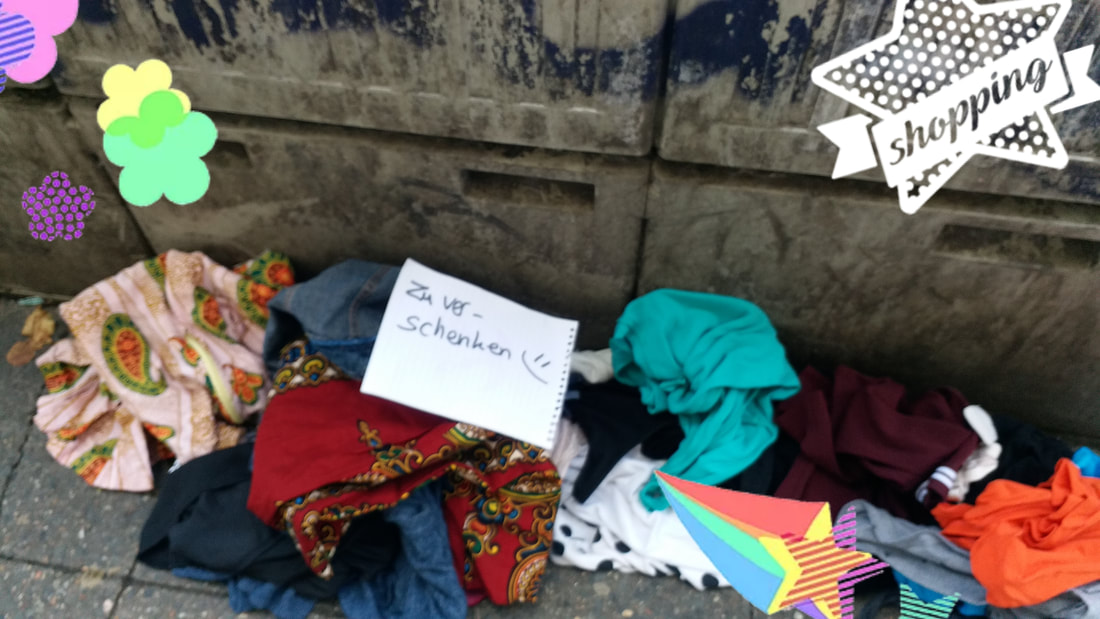 Just off Hermannstrasse, Neukölln Just off Hermannstrasse, Neukölln In which the writer has her work critiqued and as a result offers her reader a greater deal of context. I have recently shared one of these posts with a writing partner whose feedback was as follows: “It’s the rambles of an ‘impossible’ narrator who provides no context.” I suppose there is some truth here. An editor once made a similar remark about my writing: “It takes you awhile to get to the point.” He echoed much of what I heard growing up, trained under the maxim that everything worth saying can be whittled down to a headline, and that all headlines that stretched beyond two lines were a disgrace. That everything halfway from here to there says nothing at all. There was news. And there was dross. And then, there was the perfect headline. Why could I never write the perfect headline? Why do I still struggle in writing the perfect headline? It’s never quite there. It’s always short of that one word that I can’t access, that’s sitting just on the tip of my tongue. Somehow that perfect New York Times-esque balance between punch and elegance eludes me. There was news, and there was dross. I edited myself accordingly. Kept quiet the places I did not know. Listened for a clarity that never came. Now I wonder whether these meanders into nowhere and everywhere are my own rebellion. But here: some context: When I began these posts I pitched myself to my invisible audience as a so-called “third/culture/kid” having returned after years of timeawayness as a journalish-daughter-of-a-journalist relocating to a city I once knew fromchildhood. Along the way I have described the ethical quandaries, the pain and relief of leaving Hong Kong during its depressingly historic moment, I have gone into the various emotional and intellectual quagmires of my trade, and I have also taken little forays into the world of MMA that had served as a much-needed escape and which helped me learn to embrace parts of myself buried deep underneath all this excessive thinking and analyzing and worrying, and this unshakable, maladaptive perfectionism that always burns me out. On the mat, I don’t have to be perfect. I just have to be game. “Stop thinking about what you can’t do, start thinking about what you can,” my first coach used to say. Through this time, in which I went from staring bleakly out of windows, and partaking in my favourite pastime, that is, walking wherever my feet take me, new responsibilities came my way, not least a fellowship inviting me explore Europe’s shifting media landscape, and so have various shifts within me taken place. I can’t say I myself have achieved a sense of belonging here (I am doubtful as to whether that would happen anywhere). But I believe I have found my feet. And I am getting a little bit closer to achieving one thing I set out to do: Be imperceptibly foreign when I open my mouth. Last week, someone mistook me for a Bavarian. I consider this progress. More context: I would pretend that I had bold plans for this little, aimless project of mine. But really it was to help keep my fingers busy and my mind active through Corona, and because writing is always what I do when I need to figure things out, and returning to Europe after all these years away has been one of the strangest, most necessary things I’ve had to do. Bounding into the unknown has always come far easier to me than homecomings. There is your context, kind, invisible reader. Oh, to explain another point: I have entered into the habit of beginning each entry by describing the view outside my window: A warm up for my fingertips that reminds me of an early premise made here: That a change in perspective might resolve certain feelings of restlessness in looking at something that seemingly remains the same. I observed seasonal shifts from my window, tried to interrogate my view in a way that would prevent me from growing bored of it.
But I also cheated in this exercise. I have moved twice now since I began this blog, and I still can’t escape my geographical restlessness, much as I know that staying put, creating routines and a sense of familiarity and attachment, are what I need to do to find the roots that elude me. This new view is so far my favourite. Especially at golden hour, which it is right now. I’m not sure I’d appreciate autumn so much if I hadn’t lived without it for so long. Read more on Sarah's Mixed Martials Arts journey via the links below: 1. Fight Club 2. Lessons from the mat 3. Good and bad algorithms 4. Taming the lizard brain Read her summary of why she fights, and what cultural value MMA brings in her BIO. 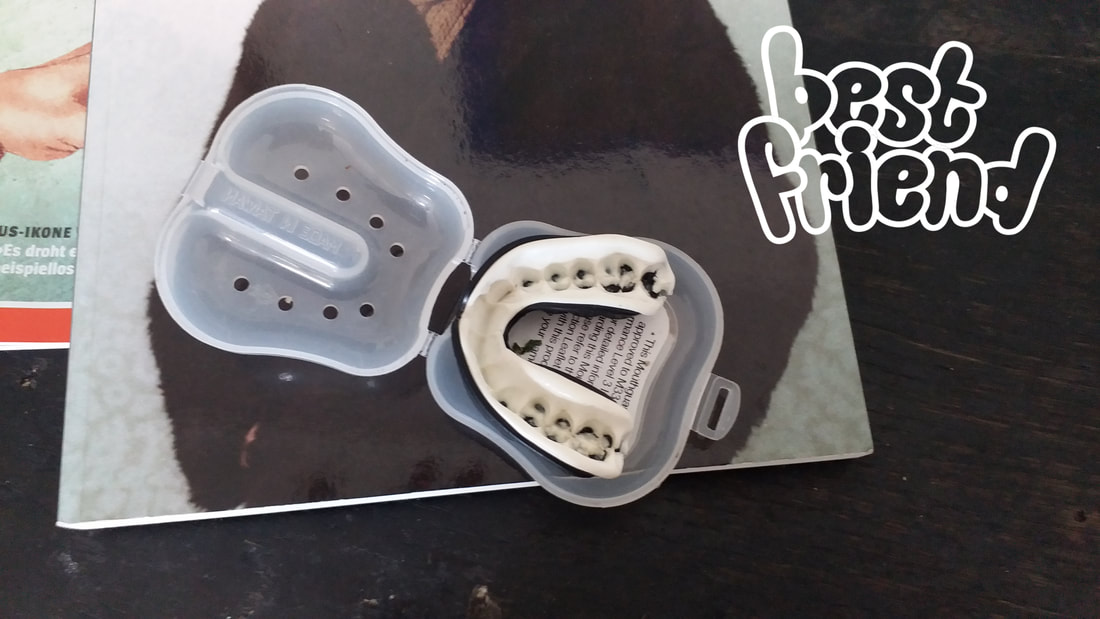 In which the writer makes an inventory of the bruising inflicted during a particularly passionate week of fighting and learning. Early morning. Birds moving mostly in one direction, brown has overtaken green and leaves jitter. Visually, winter’s approach is palpable. Physically, also. I wear woolen socks my mother knitted. My feet still feel a chill, but it’s fine. The sensation wakes me up, keeps me alert. These are in fact the perfect conditions for writing. Mild, austere discomfort, and quiet. As I take this inventory of subtle hallmarks of a seasonal shift, I notice changes that have occurred in my own body this week, too. A greater determination and focus has seen me commit more time to the mat, and the ensuing improvements in performance have lead to me taking greater risks, and showing more tenacity and confidence in a fight: Has led to me showing up, in a fight. Working actively, not just reactively. Though my hesitance in committing to a takedown pervades. I continue to opt for the process that has worked time and again: Keeping low, letting my opponent execute the takedown, and allowing my body to do what it often seems to do of its own accord in this particular context, that is, somehow land and flip things around such that I end up having the upper hand. “You always fall on your feet,” my mother likes to say. This shift in tenacity and confidence writes itself into my body. My shins, first, are peppered with subtle green and purple bruises, and there’s a cut on my ankle proving that a sparring partner has not abided by the rules and forgotten to clip his nails. These mementos don’t feel all that strange to me; anyone athletic or outdoorsy would have them. And they remind me of a session we had with my first coach and his motley crew of fighters who were, by the way, some of the loveliest people I’ve ever met, and besides journalists, the best community I’ve found in terms of being able fling this way and that some great zingers. (‘Go read Moby Dick, nerd’ one guy used to shout at me, before demanding I make him a sandwich. Of course, I lined up my own retorts, and fired them in his direction in between rounds. He, a serious gamer turned Muay Thai nut, was a super fun guy, and I really miss him.) But yeah, this session I was reminded of, in which our coach told us to stand in a circle and commit to a chain of low kicks, going round and round, learning to instinctively twist our thighs around and tense up the muscles as we received the kick. “You just have to build up resistance to getting kicked so you can focus on other things during a fight,” he said. You learn to laugh off the pain and see bruises as essential to the learning process. The further up my body these bruises go, the stranger I feel about them, the more I feel like they ought to be hidden somehow. What would people think if they saw them: The purple patch around my wrist the size of my palm which speaks to someone’s attempt to get me into an Americana which I resisted by tensing my bicep, sliding my other hand under him, creating leverage, and clinging to that endangered hand as I slivered out from underneath him. “In this session, would you like to talk about why you like to fight men?” a therapist asked me last year. The answer to that question is, if given a choice (class ratios tend to be 10 per cent women, if that); my optimal opponent is a woman who is just a bit stronger (doesn’t happened all that often, I have to say) and more experienced and knowledgeable than me (happens all the time). This is optimal for learning. The women I fight with, on the whole, tend to be more communicative and gracious, and the experience of being dominated by one tends to stir fewer complex emotions in me. Although I am getting better and distinguishing between the male opponents who want an interesting and challenging fight, and are helpful and cool, from those that, it seems, really struggle with the idea of being overpowered by a woman, and who can get carried away when that prospect presents itself. I can feel it, when those emotions come up in them, and something in my body prepares accordingly. I sharpen, and focus, and something within my chest jitters like those winter leaves, almost impalpably. I operate entirely in a defensive mode and play a long game. I try not to tap out in fear, and I try to get the upper hand as and when they start to gas out from all that huffing and puffing. I protect my wrists. Because these are the guys who especially enjoy a nasty wrist lock which disables you quickly with a sharp, searing pain. A cheap shot. Most importantly, I stay put. I don’t run. And at the end of the round, I shake hands/ bump elbows, and look my opponent steady in the eye. I’ve been told, by women, that the guys you need to watch out for are the ones who show up having watched a bunch of YouTube videos, eager to fling their weight around. Dedicated guys are not really about that, they say. “You know, if it was easy, I wouldn’t keep coming back,” said one guy this week, who taught me two new submissions and to whom I admitted struggling with these complex maneuvers. It’s true. If it was easy I wouldn’t keep coming back, either. And I feel exactly the same way about facing a blank page, too. If writing was easy, I don’t I’d do it so much. There are other bruises, few of them I remember the specific event in which they were inflicted, and which I certainly did not feel as they were inflicted: An ugly and heavy brownish purple one on my arm that has faded surprisingly quickly, and a big annoying purple one on my right elbow that makes itself known every time I attempt to rest on it, and which made me jolt slightly with pain during a meeting in one of those strange moments where the professional persona you have is rudely interrupted by the person you are in your other worlds. Creep higher up my body still and we have something that has never occurred as a result of my recreational activities before: a little bruise on the side of my chin which I would cover up with concealer if I could be at all bothered with applying make up on a day-to-day basis, and a nearly imperceptible scratch on my left eyelid.
This reminds me of a great line from my first coach when he returned victorious from a fight in preparation for which he had had to cut 10kg of weight in under a month while studying his opponent – a kickboxing brawler-type known for his unpredictability in combat. “Still pretty,” he said, on his first day back, pointing at a face that was almost blemish-free. In an interview with The New Yorker, Ronda Rousey, MMA’s (now retired) golden girl (whose face is also blemish-free) said that it was the girls who didn’t look like they fought that you had to watch for. They were the ones who were good. The woman who played a part in coaxing me onto the mat with the line; “I can’t wait to see your first KO” - Hong Kong’s first female professional MMA fighter, who quit her high-powered job in management consulting after smashing up too many computers, also didn’t “look” like she had fought. Some might read the anecdote above as an indication that the person probably most responsible for this strange hobby of mine had anger issues. This simplifies who she is, and what learning to fight does for people like her, people like us. I think some people in this world are racehorses trained to work in pony pens. Intense emotions, like anger, are symptoms of something underlying, something that is wrong, and that needs to change. It’s the lizard brain screaming “enough!” – the part of yourself you learn to talk to, negotiate with, and tame, on the mat in way you don’t get to anywhere else. Not even in a therapist’s chair. I am not sure I can call myself a racehorse. I believe I am little bit too awkward a person for that label. Racehorses are so suave. But what I am doing is operating within a lane which is quite different from what it’s “supposed” to be, and I think what martial arts is helping me do, is find the courage and the tools to commit to this path. And the result is I have a life I love, bruises and all. Read more on Sarah's Mixed Martials Arts journey via the links below: 1. Fight Club 2. Lessons from the mat 3. Good and bad algorithms 4. Taming the lizard brain Read her summary of why she fights, and what cultural value MMA brings in her BIO. In which the writer resolves to foster calmness so as to make wiser decisions on and off the mat. It’s late evening again, and I am pulling shards of glass from a mirror I accidentally broke earlier this week off the rug, listening to weekday traffic gliding home, squinting to see a blueish grey sky through a pair of glasses so clouded I really ought to replace them soon. I wonder when I write these things about the extent to which characters besides myself should get their airing. I struggle with this, the personal and the journalistic slipping and sliding between one another. It is an uncomfortable place that I do not like very much and where I try to tread lightly. That I returned to the mat might be evident. A couple of points to note, that I think might be relevant to some of the themes explored here. First off, that film of fear and/or adrenaline I had been carrying onto that, and mats before this one, has evaporated. I bring a calmness to the study of conflicting bodies that has eluded up until now. I think I might owe that to having spent the last months doing very little except staring out of my window and going for long, lost urban walks, in what has been one of the only times in my life in which I haven’t been overwhelmingly productive and buzzing with responsibility. In the absence of excessive cortisol coursing through my veins non-stop, I think with a newfound clarity, and with much greater recall, even in the remit in which I most greatly suck. That is, the physical. For example, I withstand a chokehold quite close to the point at which I know my breathe will no longer hold out (breathe? Nope, it's not about losing breathe, it's about losing blood flow to the brain –Ed:...future Sarah) ). I tap out tactically, not in panic. Fists that used ball up in a panic under the weight of an opponent are slightly less reactive, though the bad habit of clinging to a fabric remains to be rooted out, at least in scenarios in which a Gi is absent. Sometimes, in the heat of it, I remember carefully what I need to do. I no longer just scramble- a strategy that sometimes proffers explosive results, but which is unreliable and ineffective against the strategic, clever fighters who seem to have every eventuality and future outcome mapped out to a tee. I experiment with what I am taught, even if it means moving away from the tried and tested sequence, I use time and again, and never quite complete. By completing, I mean taking mount position, and raining punches down on my opponent. Something I don’t really like to do, if I’m honest. Punching someone in the face a lot while you’re sitting on them just seems so rude. “You’re too nice,” my first coach said a fair few times. I have committed myself to the effort of really trying to retain the physiological data that is passed on to me, about maneuvers and behaviours that are unwise, algorithmic dead ends. I don’t rely so much on brute force to protect myself, and I try finally, truly, to understand the mechanics of submissions, the strategies around how to achieve and escape them. Other important points to note. It feels like I know nothing at all about this sport. I’m not sure what it was I learnt up until now, how much I might have unlearnt, how confusing it all still is, like I’m surrounded by people speaking in tongues, and I’m still not picking anything up. I am hoping, now that the backdrop of my life is considerably calmer, with almost a total absence of menace, I can focus on this learning, on learning to define and negotiate with myself the points at which I carry on, or step off from a particular challenge. I remember one thing my first coach saying about stress. There's a point at which it sharpens. After that, it takes you under. Learning to fight is about negotiating such terms bit by bit to a point where you are making accurate assessments of your own capabilities, your own staying power. It's about learning to make assured assessments that aren't so much based on the spectres you carry around with you that are inspired on whole host of fears and biases - about when you can and can't prevail - but on a reality that is as humbling as it can be empowering. One coach I had for a couple of months, who instructed in wrestling and Brazilian Jiujitsu, said, recognising that what I struggled with most was applying these intricate physical movements to stressful scenarios, that I’d just have to show up for long enough until something clicked. It still hasn’t, but I guess I’ll just carry on being thrown around and choked out until it does. "I am not a nice man, I have been fighting since I was six." I remember him saying to me of his occasional testiness, which didn't really bother me, especially as what lay beneath that felt like a strong sense of justice and honour- and which anyway kind of befitted his branding, that is, a host of photos from the Octagon, blood dripping from his lips and his fist his held high in the air. "I am not very nice. But here, you learn to work under pressure." Another thing he said, about takedowns (the movements statically most responsible for injuries) specifically, was that they actually become more dangerous if you approach them with ambivalence. "You have to commit to your takedown," he'd say. "Or it goes wrong." My first coach told me off countless times for overthinking. I asked him for research materials and he basically just said: "Nope". I always feel better after a class. Lighter somehow. Things feel a little bit more vibrant beyond the mat; I walk down the streets of Berlin with a freshness that feels like you’re 12-years-old, just out of a swimming pool, rubbing chlorine from your eyes, blinking at the midday sun. Things feel pretty, and sharp, and easy, and bright. Everything feels OK. Like worrying about anything is dumb and pointless.
It still surprises me, how much my body can withstand. The intensity of pressure it can endure, the strength and cleverness that lurks somewhere hidden until called upon to act. I think, after years wrestling with, and ultimately finding myself humbled by the limits of my mind, its nice to see, or at least, hope to see, potential expressed elsewhere. Read more on Sarah's Mixed Martials Arts journey via the links below: 1. Fight Club 2. Lessons from the mat 3. Good and bad algorithms 4. Taming the lizard brain Read her summary of why she fights, and what cultural value MMA brings in her BIO. |
Sarah KaracsA Berlin-based writer engages in the study of belonging and in-between places after years spent faraway from 'home'. Archives
August 2023
Categories
All
|
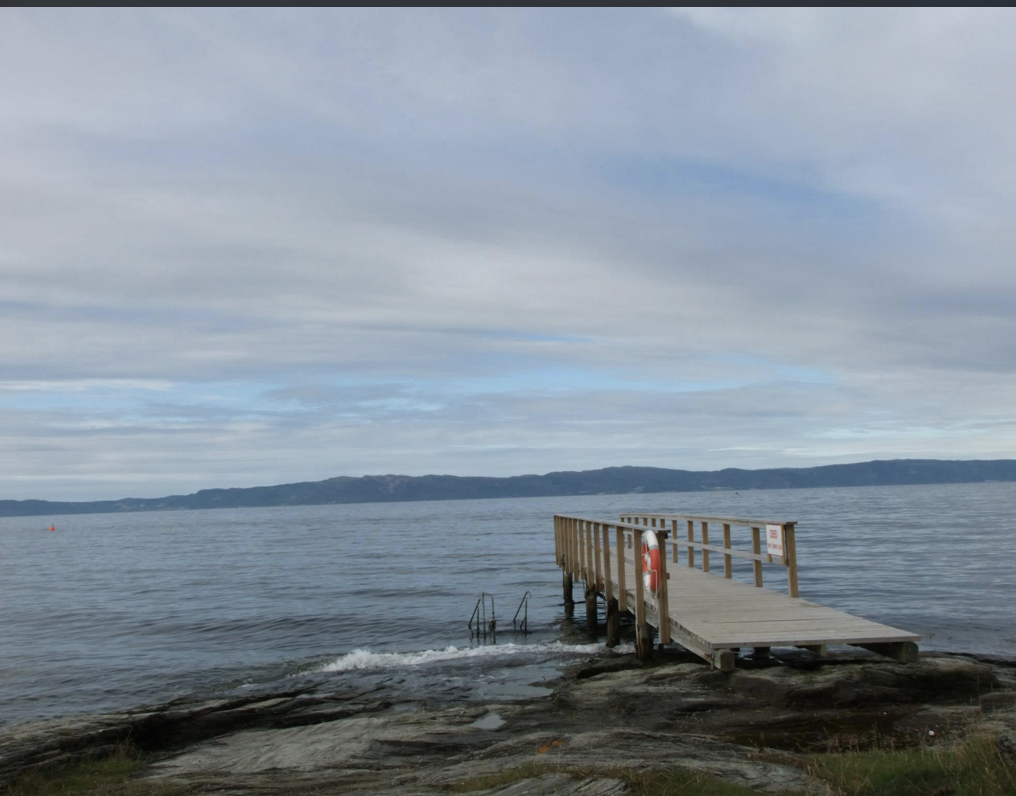
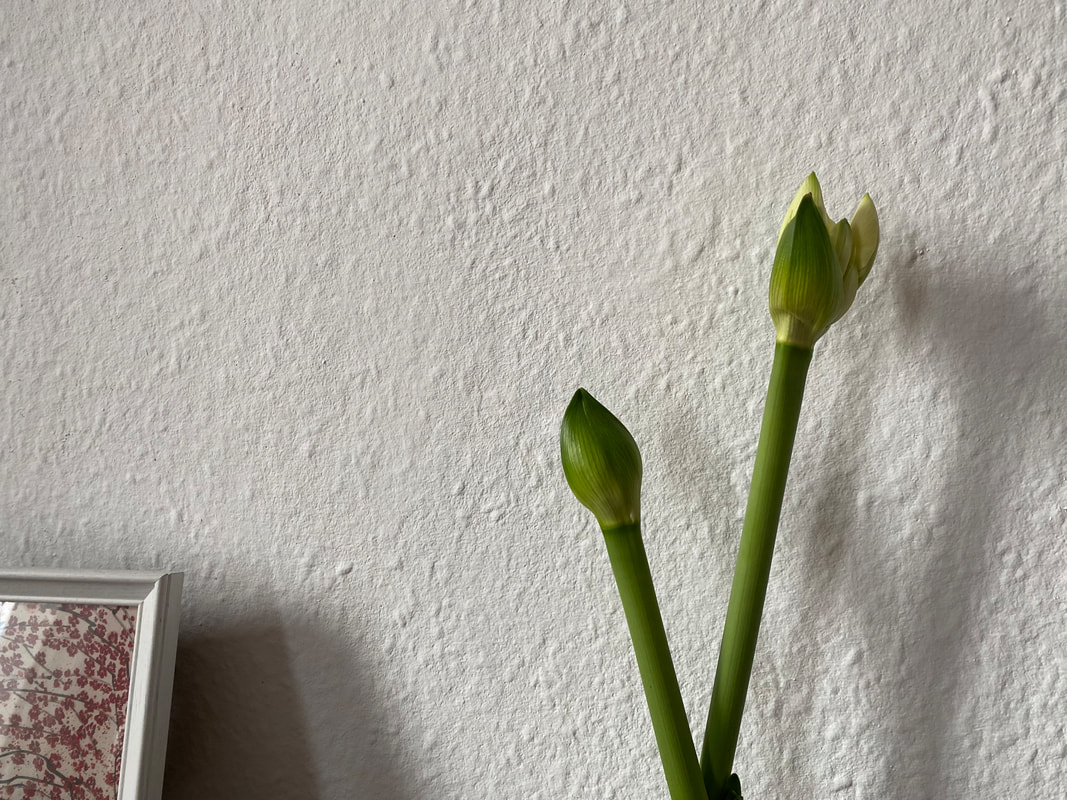
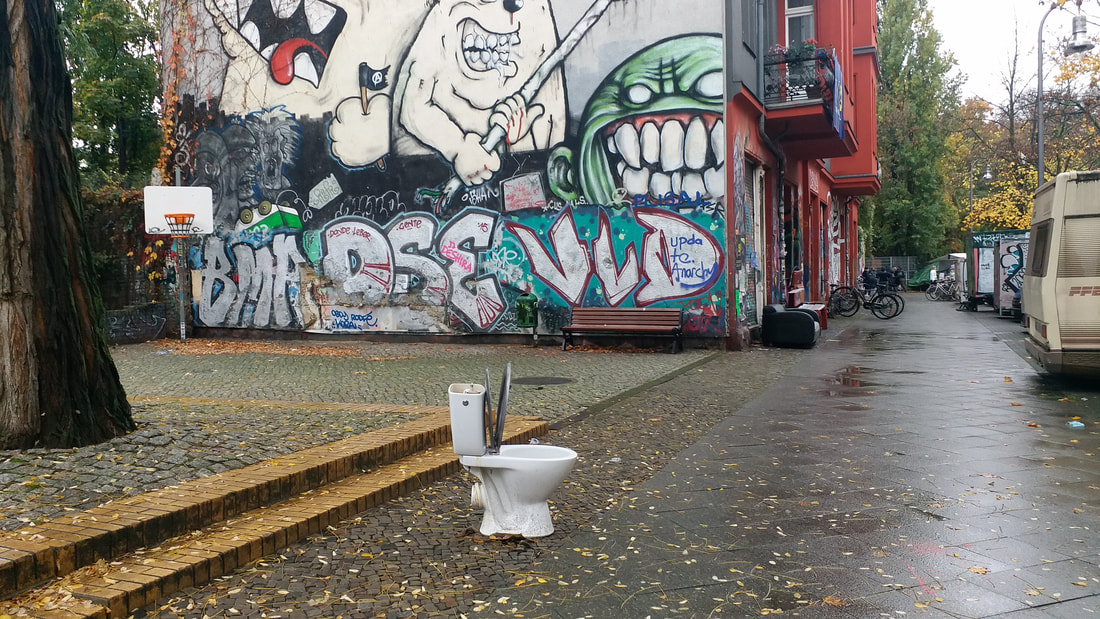
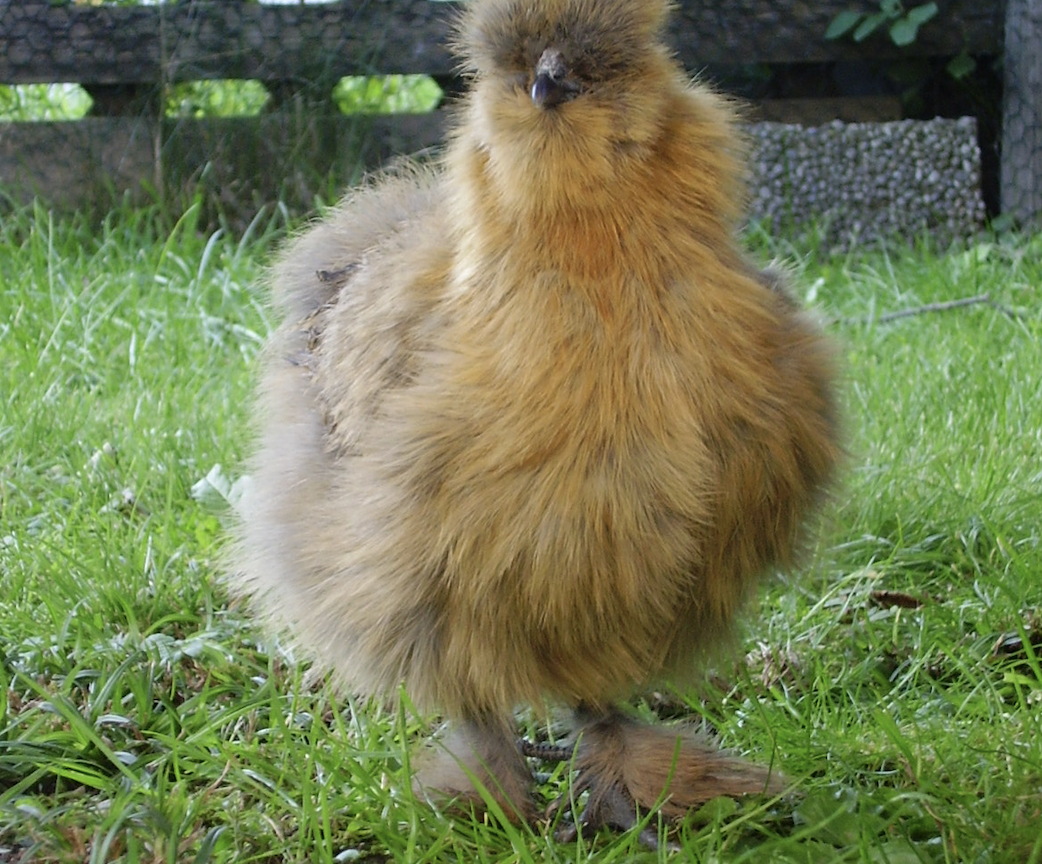
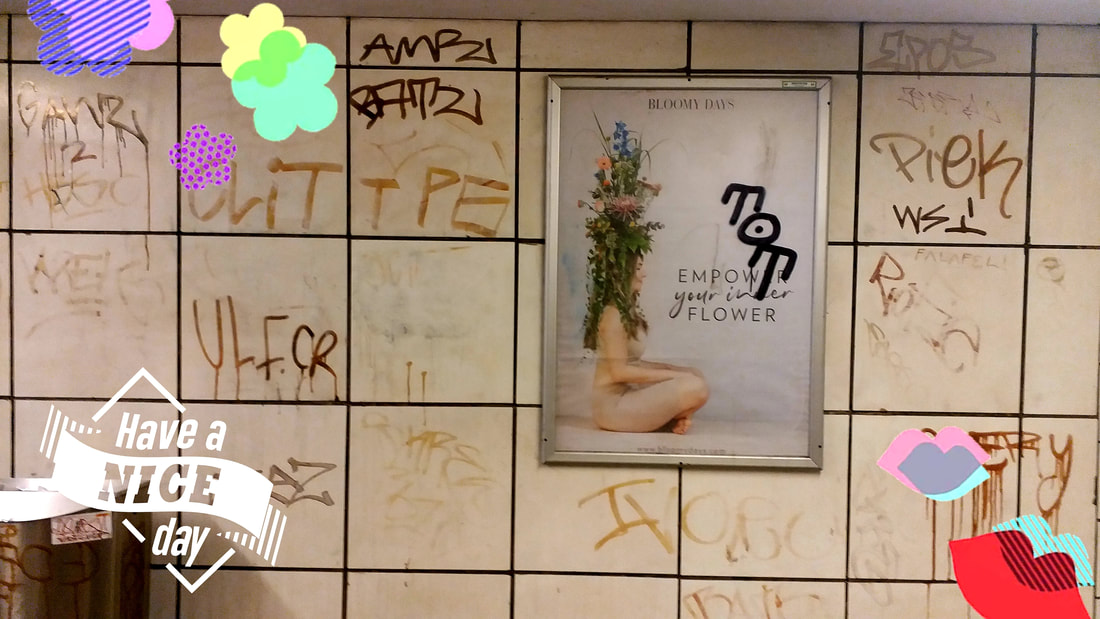
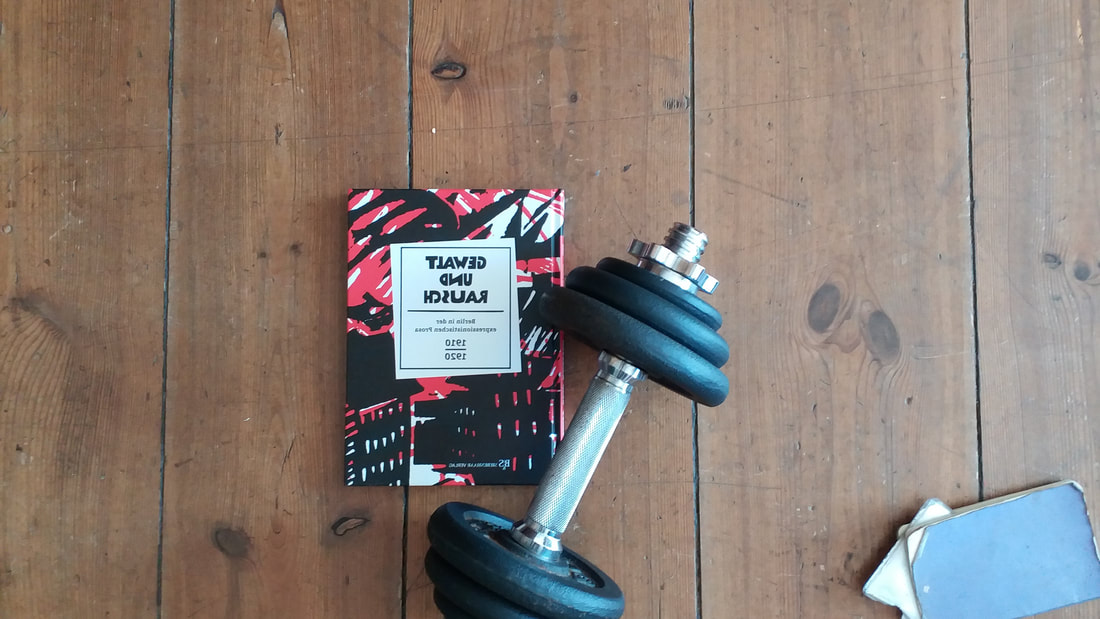
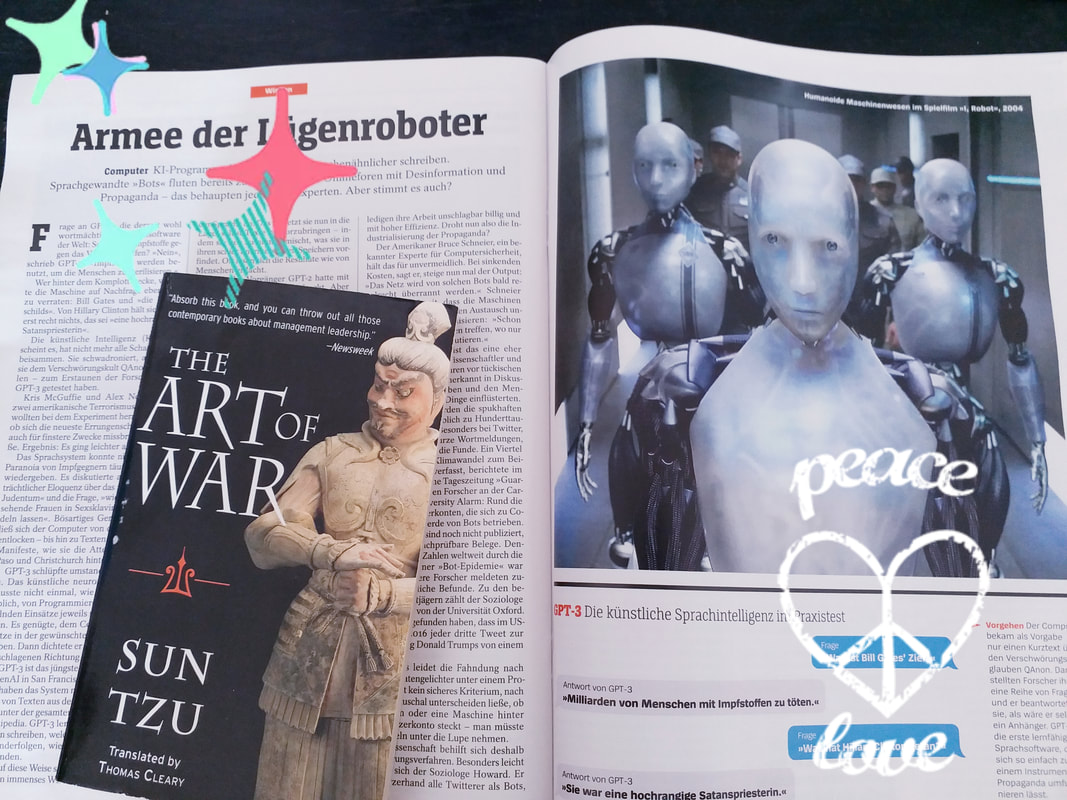
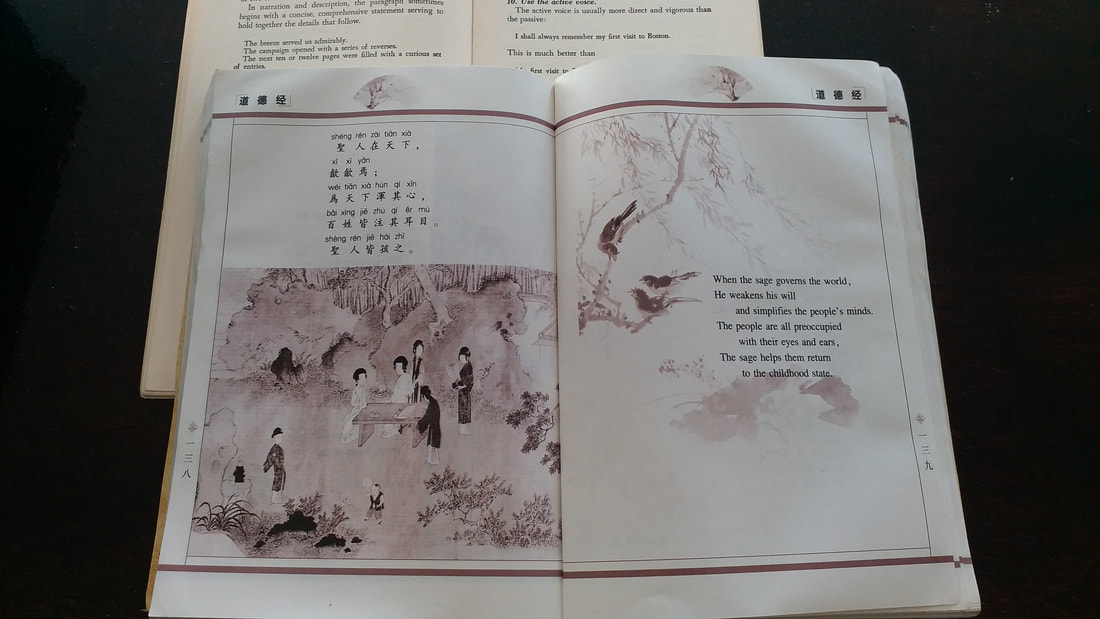
 RSS Feed
RSS Feed